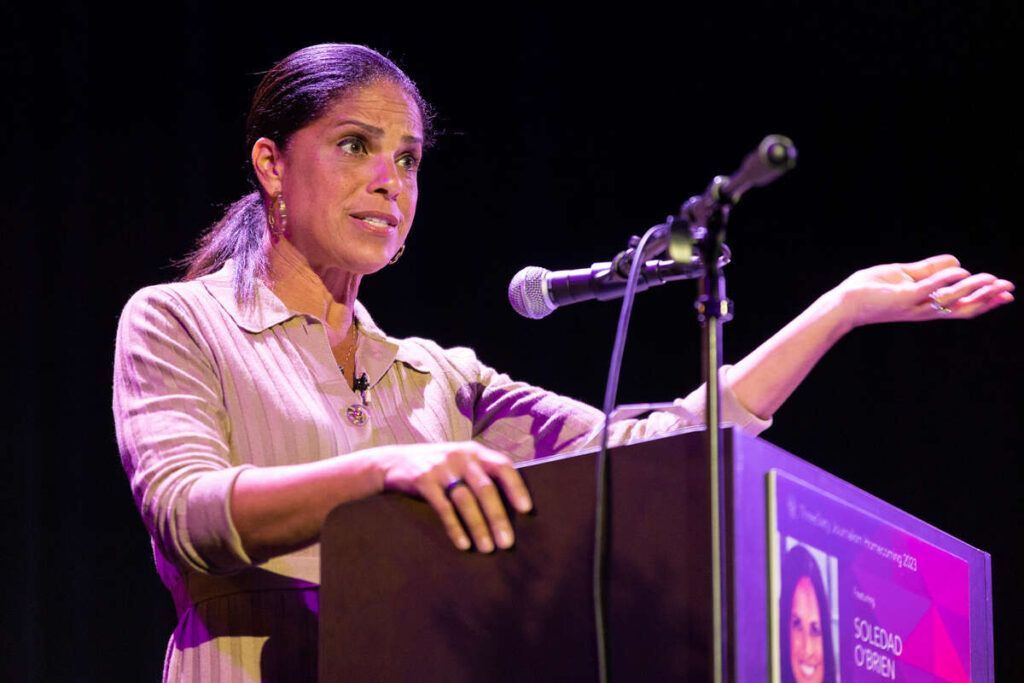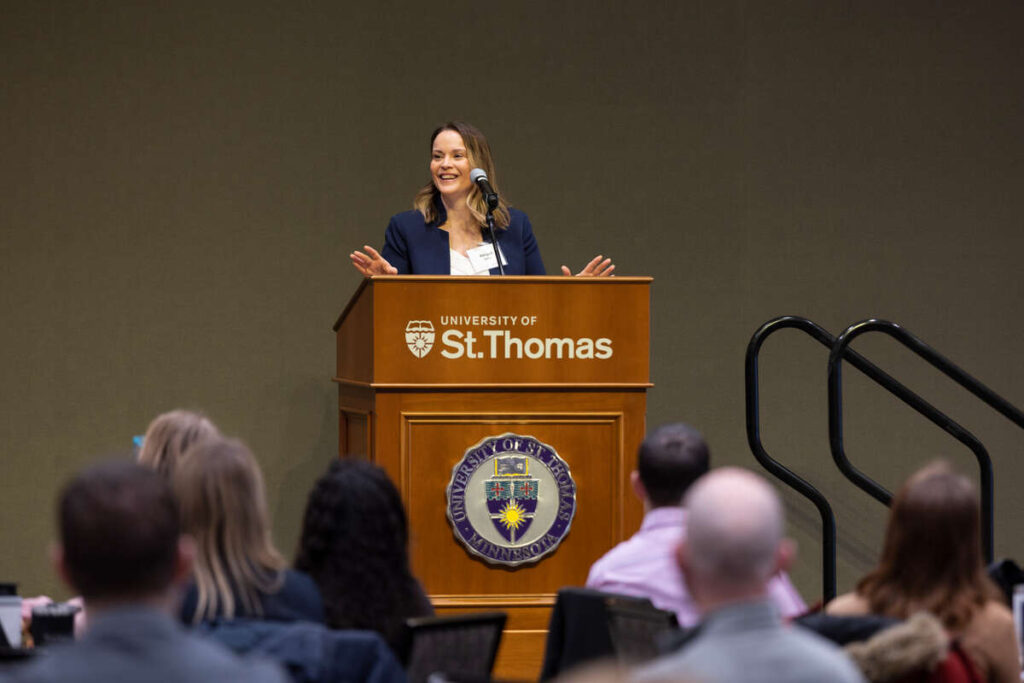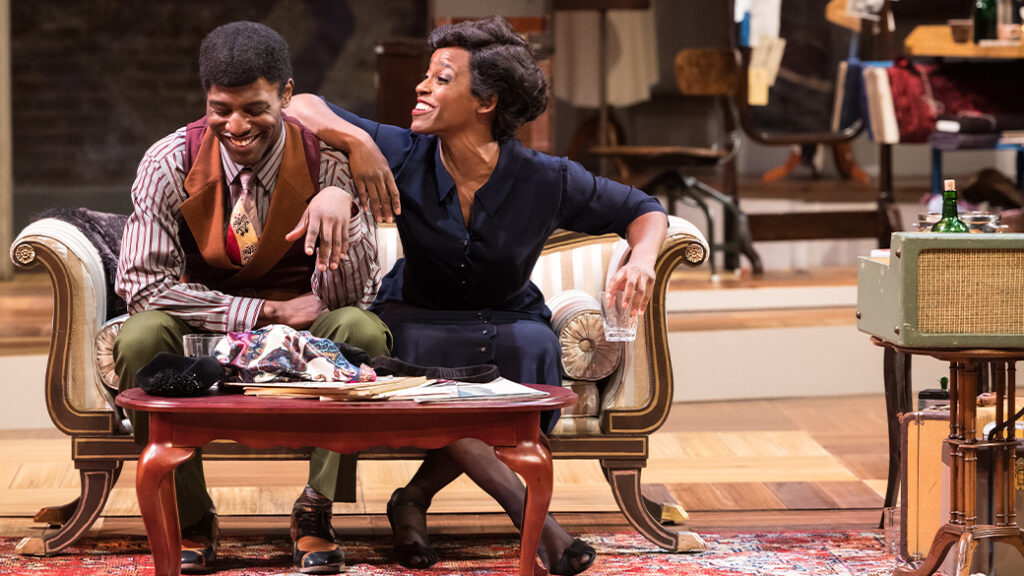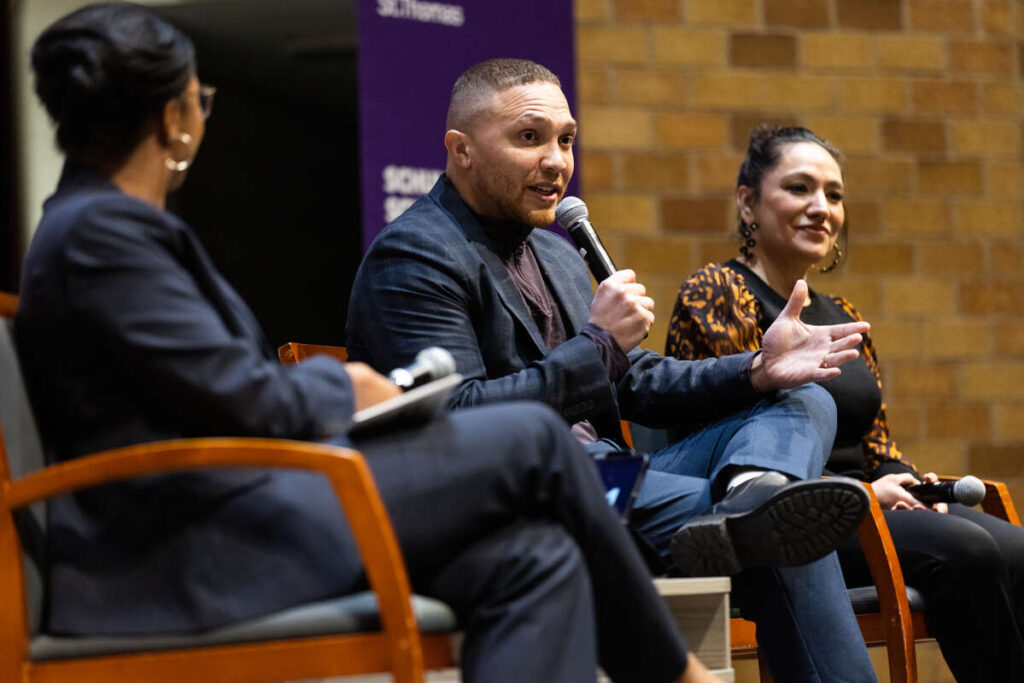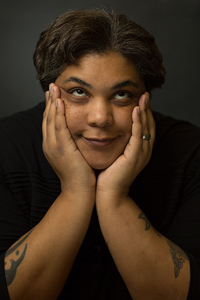
Roxane Gay
When National Public Radio legal affairs correspondent Nina Totenberg had to bow out of her speaking engagement at St. Thomas, author and cultural critic Roxane Gay stepped in. Gay, the author of a book of essays titled Bad Feminist, spoke April 6 as this year’s Women’s History Month speaker. This is the 23rd year the Luann Dummer Center for Women has invited a speaker to campus in celebration of Women’s History Month.
Born in Omaha, Nebraska, to Haitian immigrants, Gay incorporates her childhood and heritage into her writing. She is the author of Ayiti, a collection of essays; An Untamed State, a novel; and Hunger: A Memoir of (My) Body, which will be published this summer by HarperCollins.
She holds a Ph.D. in rhetoric and technical communication from Michigan Technological University and an M.A. in English with an emphasis in creative writing from the University of Nebraska-Lincoln. She currently is an associate professor of English at Purdue University in West Lafayette, Indiana.
At St. Thomas, Gay read a few of her essays to the more than 450 audience members, who were mostly students. Her witty and thoughtful essays touched on topics such as her first year as a professor, her crush on her UPS delivery man, how to be friends with another woman, how life is not like the Sweet Valley High books and her essay titled “Bad Feminist.”
As she answered audience questions, Gay spoke candidly about her take on the complexities and nuances of being a feminist writer.
Here are five observations from her talk.
What does it mean to be a bad feminist?
It’s the No. 1 question Gay is asked, but it’s a phrase still hard to explain. She doesn’t consider herself a “mainstream” feminist. “I thought feminists were a certain kind of women: heterosexual, white women,” she said.
“I’m utterly human and flawed,” she continued. “Pink is my favorite color. I read Vogue, and I don’t mean that ironically. I know nothing about cars. I call my dad with car questions. I don’t care. Good feminists are independent enough to care.”
She admits her love for pop culture and expands the term “feminist” to include it. She enjoys rap music but naturally questions some of the language. “We can do better,” she said. “I would never challenge an artist’s right to create. It reflects the music industry as a whole, not individual artists.”
Being known as a feminist writer elicits both positive and negative reactions from people.
“Being a feminist, I know that I and all women are equal to men, and I have confidence to stand up for myself,” Gay said. “I think ‘what would an average dude do?’ in any situation. I believe I deserve the best.”
When an audience member asked why people question the meaning of feminism, Gay said that those people don’t want to understand. “When they hear 'equality,' they think something will be taken away,” she explained.
On the negative side, Gay said she experiences a lot of pressure to fulfill people’s expectations of her. She has been attacked online, especially for her blog.
Sexist remarks need to be dealt with immediately.
When a student in the audience repeated a derogatory remark that a male student made about a woman, there were some gasps of disbelief from the audience. Gay advised anyone who faces situations such as this to respond immediately. “That’s not acceptable in the classroom,” is one possibility. As a professor, Gay knows that teachers don’t want to ostracize the person in front of their peers. She suggested having a conference with the person after class.
Although often misinterpreted, the dictionary definition of feminism is the advocacy of women's rights on the grounds of political, social and economic equality to men.
Two men in the audience asked how they can be aware of injustices to women and be proactive. “Be aware that your masculinity allows you privileges that women will never know,” Gay said. “Don’t allow toxicity to be part of your masculinity. We’re all human. Just be considerate. Notice who’s speaking more in class – women or men? Maybe just don’t talk!”
You can’t wait for inspiration to write.
Gay’s writing has appeared in Best American Mystery Stories 2014, Oxford American, American Short Fiction and many others. She is a contributing op-ed writer for The New York Times, and teaches creative writing, so she knows what it’s like for a writer to stare at a blank page. But she said she doesn’t have time to wait for inspiration, so her writing is based on her deadlines.
She advised aspiring writers to treat writing “as a job that you take seriously and show up for it every day.” She also suggested networking, such as attending writers’ conferences.
But she admits that she’s a workaholic who needs to take better care of herself, and recommended that others not follow her example.
